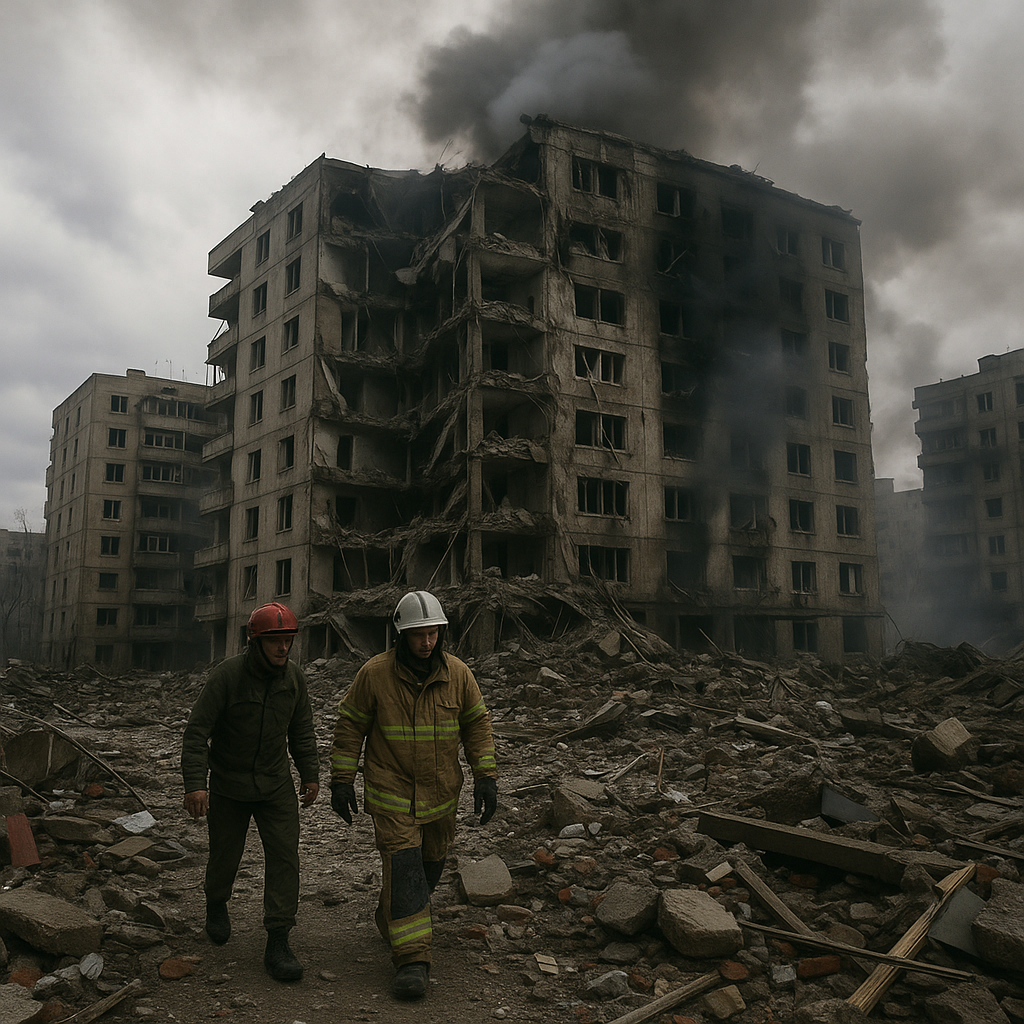UN Condemns Israeli Attacks on Iran, Warns of Legal and Humanitarian Crisis
According to early reports cited by the UN, the strikes have killed at least 224 people in Iran, an estimated 90% of whom are civilians.

A group of United Nations experts has delivered a scathing condemnation of Israel’s recent military strikes on Iran, denouncing them as clear violations of international law and alarming escalations of regional conflict. The strikes, which targeted nuclear facilities, military assets, energy infrastructure, residential buildings, and a media outlet in Tehran and other areas, have triggered a wave of outrage within the global diplomatic and legal community.
“These attacks represent a flagrant violation of fundamental principles of international law,” the UN experts said. “They amount to an act of aggression and violate jus cogens norms—peremptory norms that permit no exception.”
Civilian Deaths and Media Casualties Raise Alarm
According to early reports cited by the UN, the strikes have killed at least 224 people in Iran, an estimated 90% of whom are civilians. Among the dead are military commanders, government officials, civilian scientists, and three media personnel from Iran’s state television network. The experts emphasized that under international humanitarian law, journalists are protected as civilians and cannot be deliberately targeted.
Iran’s capital, Tehran, bore the brunt of the assault, with several areas suffering heavy damage, particularly in residential zones. The experts noted that Iran's retaliatory missile response also struck civilian infrastructure in Israel, including a hospital and nearby residences, in addition to targeting military and energy sites. Twenty-four Israeli civilians have reportedly been killed so far.
Legal Principles Violated: UN Charter and the Laws of War
Central to the UN experts' statement is the assertion that the Israeli strikes violate Article 2(4) of the UN Charter, which prohibits the use of force against the sovereignty and political independence of another state. Claims of preemptive self-defense based on suspicions of nuclear proliferation or terrorism do not justify such attacks under international law.
“Even in self-defense, international law imposes strict requirements of proportionality, distinction, and precaution,” they said, condemning both Israel's and Iran's actions as incompatible with these principles.
Escalation During Diplomatic Talks Raises Concerns
The timing of the strikes—concurrent with diplomatic negotiations in Muscat aimed at reviving the Joint Comprehensive Plan of Action (JCPOA)—has raised additional concerns. The UN experts warned that the military action could be interpreted as a deliberate effort to derail peace initiatives.
“This aggravates the charges against Israel of posing a threat to peace and security in the region and beyond,” they said.
Global Legal Ramifications and International Order at Risk
The experts underscored that military action near or against nuclear facilities carries the risk of catastrophic consequences, not just for the region, but for global security and environmental health. Echoing the International Atomic Energy Agency (IAEA), they warned of the unacceptable dangers inherent in such attacks.
They also drew attention to broader concerns over Israel’s conduct, linking the strikes on Iran with alleged war crimes and human rights abuses in the West Bank and Gaza. These include accusations of annexation, apartheid, starvation tactics, and domicide—systematic destruction of homes—amounting to genocide and violations of the Rome Statute of the International Criminal Court.
“These crises cannot be viewed in isolation,” the experts cautioned. “The normalization of force as a foreign policy tool risks dismantling the already fragile international legal order.”
Call to the International Community: Act Now or Face Regional Collapse
In a direct appeal to the global community, the UN experts urged coordinated and principled responses to de-escalate the conflict and uphold international norms. They stressed the importance of ongoing international legal proceedings against Israel, which prohibit any form of aid, trade, or arms support to a state accused of atrocity crimes.
“Stopping the supply of arms to Israel is the first step to return to peace and stability in the region,” they declared.
Calling on world leaders to recommit to diplomacy and multilateral dialogue, the UN experts warned that failure to act risks plunging not only the Middle East, but the wider international community, into an unrelenting spiral of violence and lawlessness.
ALSO READ
Nuclear Tensions Rise: IAEA Chief Warns of Iran-Israel Conflict Fallout
Nuclear Tensions: The IAEA and Iran's Diplomatic Dilemma
Tensions Rise Over IAEA's Iran Report
Iran says it will create a new uranium enrichment facility after a vote at the IAEA, reports AP.
China Advances Nuclear Legal Framework with IAEA Support and New Training










